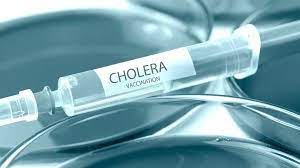The campaign, which utilized nearly one-third of the global vaccine stockpile, targeted 89 woredas, including vulnerable populations such as internally displaced persons and refugees from Sudan.
Despite challenges posed by ongoing conflict and humanitarian crises, the campaign achieved a remarkable 98.4% coverage rate. This achievement is attributed to strong leadership from the Ethiopian Public Health Institute (EPHI) and the collaborative efforts of numerous partners.
Cholera remains a significant public health threat in Ethiopia, with cases surging in recent months, particularly in conflict-affected regions. The outbreak has exacerbated the humanitarian crisis, straining already overstretched health systems.
To combat the spread of cholera, the government has implemented a comprehensive response strategy, including improved sanitation, water treatment, and community engagement. However, severe funding shortages continue to hinder progress.
The World Health Organization (WHO) has been instrumental in supporting Ethiopia’s cholera response, providing technical expertise, supplies, and personnel. The organization also played a crucial role in securing the necessary vaccines through the Global Vaccine Alliance (GAVI).
While the vaccination campaign is a critical step in controlling the outbreak, it is essential to address the underlying causes of cholera, such as poor sanitation and access to clean water. Sustained investments in these areas are vital to prevent future outbreaks and protect the health of the population.
The situation in Ethiopia is further complicated by a growing measles outbreak, which has been exacerbated by vaccine shortages. This dual health crisis underscores the urgent need for increased support from the international community.
ABJ/APA


